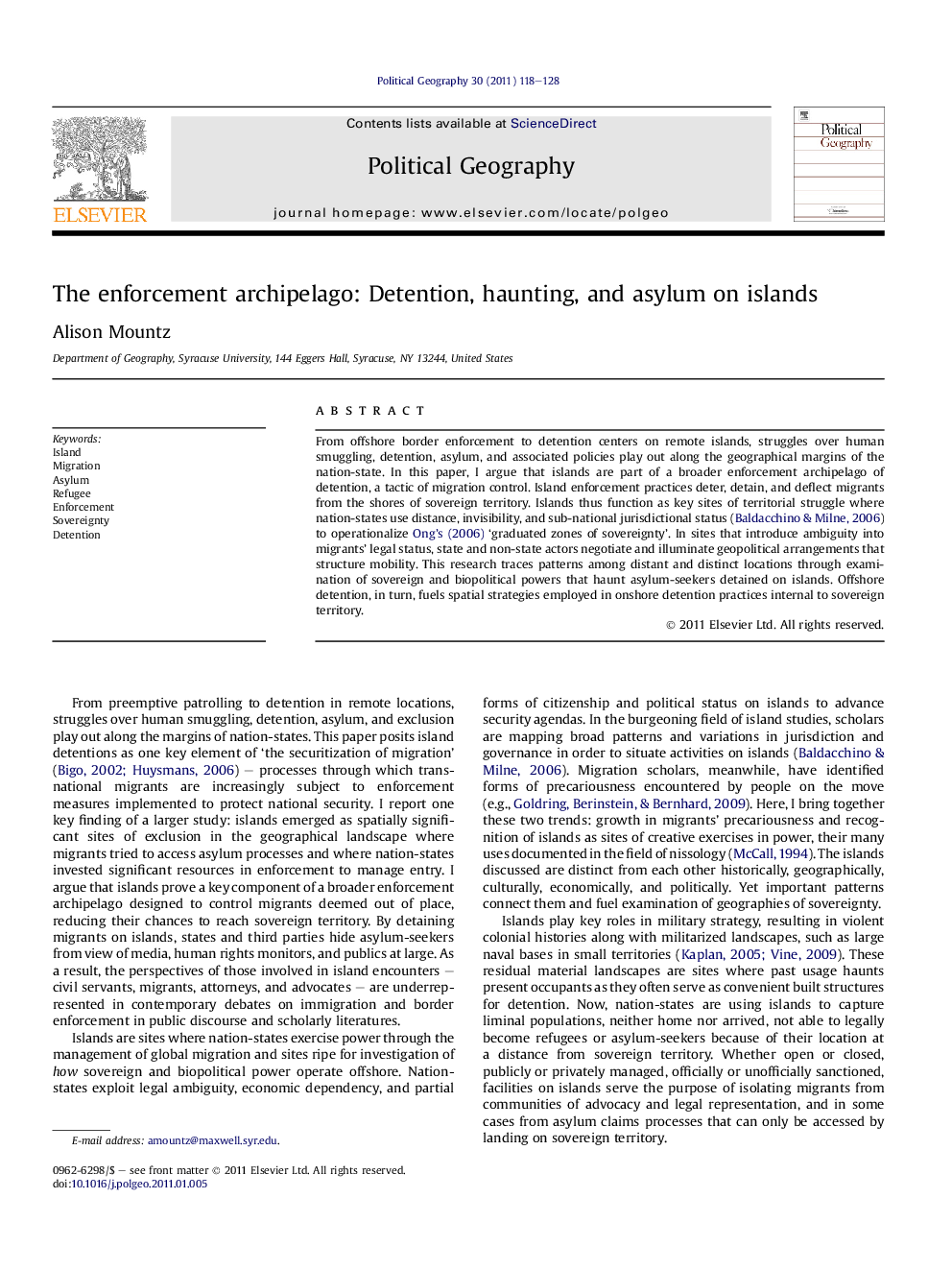| Article ID | Journal | Published Year | Pages | File Type |
|---|---|---|---|---|
| 1062046 | Political Geography | 2011 | 11 Pages |
From offshore border enforcement to detention centers on remote islands, struggles over human smuggling, detention, asylum, and associated policies play out along the geographical margins of the nation-state. In this paper, I argue that islands are part of a broader enforcement archipelago of detention, a tactic of migration control. Island enforcement practices deter, detain, and deflect migrants from the shores of sovereign territory. Islands thus function as key sites of territorial struggle where nation-states use distance, invisibility, and sub-national jurisdictional status (Baldacchino & Milne, 2006) to operationalize Ong’s (2006) ‘graduated zones of sovereignty’. In sites that introduce ambiguity into migrants’ legal status, state and non-state actors negotiate and illuminate geopolitical arrangements that structure mobility. This research traces patterns among distant and distinct locations through examination of sovereign and biopolitical powers that haunt asylum-seekers detained on islands. Offshore detention, in turn, fuels spatial strategies employed in onshore detention practices internal to sovereign territory.
► Islands are part of a broader enforcement archipelago of detention, a tactic of migration control. ► Island enforcement practices deter, detain, and deflect migrants from mainland territory. ► Islands are sites of territorial struggle where states exploit distance, precariousness, and ambiguous status. ► Geopolitical arrangements structure mobility on islands. ► Offshore detention fuels strategies employed onshore such as visibility and invisibility.
